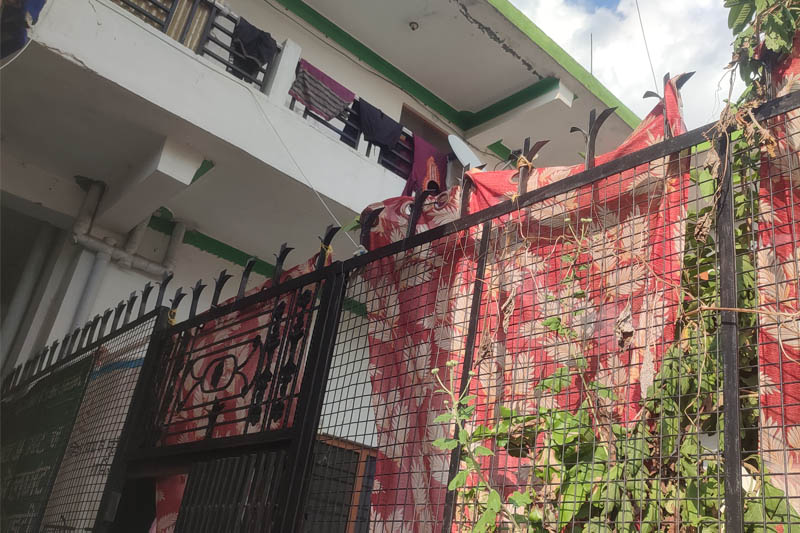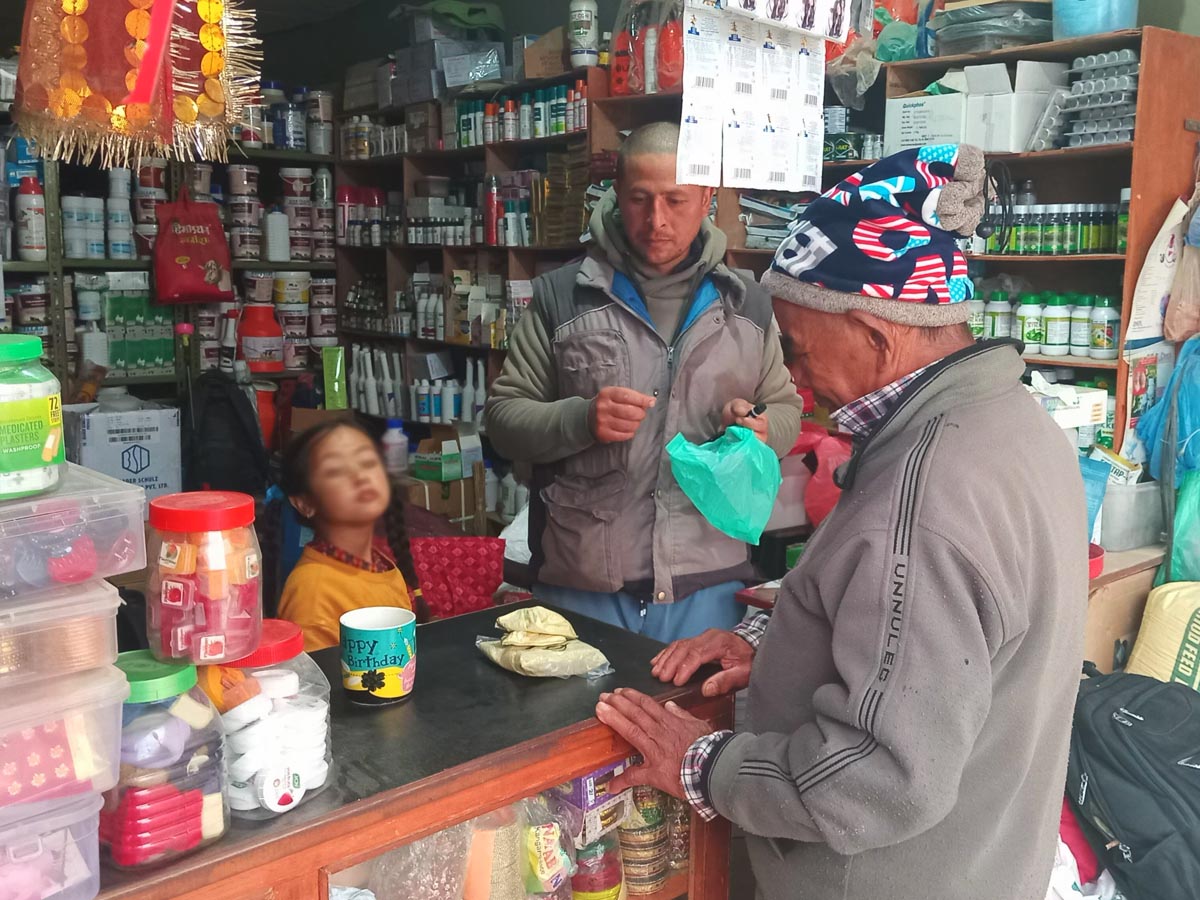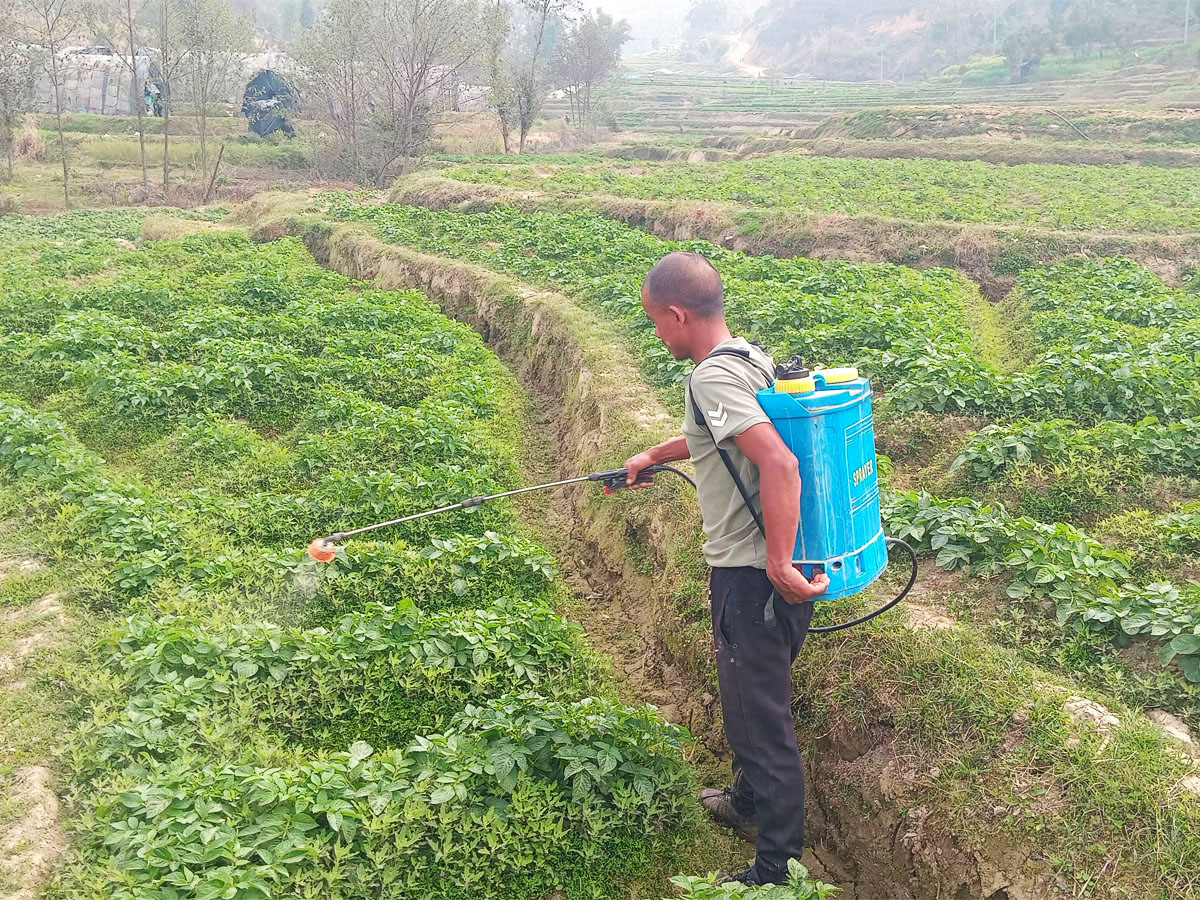Dixya (name changed), a resident of Bhimdatta Municipality in Kanchanpur district, regularly worked as a daily wage laborer alongside Saraswati, a distant relative of her mother's sister. The 14-year-old often accompanied Saraswati on shopping trips to the market. One day, during a local fair, Saraswati suggested to Dixya that she marry a boy residing in India and took her across the border on September 5, 2024. Saraswati frequently traveled to India, as her husband was employed in Pithoragarh.
 Saraswati claimed the boy was a relative and that Dixya would have a better life with him. According to Dixya, Saraswati showed her photographs of the boy and urged her not to miss the opportunity. "But I declined the proposal of marriage," Dixya stated in the presence of her parents. "During that local fair, she pressured me a lot. 'You often have arguments in the family. You will have a short break and fun, and then we will return,'" she recounted. "Despite my refusal, Saraswati took me there."
Saraswati claimed the boy was a relative and that Dixya would have a better life with him. According to Dixya, Saraswati showed her photographs of the boy and urged her not to miss the opportunity. "But I declined the proposal of marriage," Dixya stated in the presence of her parents. "During that local fair, she pressured me a lot. 'You often have arguments in the family. You will have a short break and fun, and then we will return,'" she recounted. "Despite my refusal, Saraswati took me there."
Dixya was taken across the border through the Tanakpur border crossing between Nepal and India. Being only 14 years old, Dixya was underage, and Saraswati presented someone else's birth certificate to facilitate their crossing. "The police asked me my name. But before I could answer, Saraswati produced another person's birth certificate and stated that individual's name. She also gave a false name for my father, and I was transported to India," Dixya recounted.
Despite her unwillingness, Dixya was enticed into going to India, a violation of the Human Trafficking and Transportation Control Act (2007). This Act defines Human Trafficking and Transportation as the act of taking a person from their home, place of residence, or from a guardian through means such as enticement, inducement, misinformation, forgery, tricks, coercion, abduction, hostage-taking, allurement, influence, threat, abuse of power, or by means of inducement, fear, threat, or coercion directed at the guardian or custodian. The purpose of such actions is to take the person into one's custody, transport them to any location within Nepal or abroad, or hand them over to another individual for the purposes of prostitution and exploitation. According to this Act, Saraswati committed human transportation of Dixya. Tragically, many girls like Dixya are transported by individuals who are their own relatives.
Dixya's family has accused Saraswati of arranging Dixya's marriage to a young man from Pithoragarh and receiving 50,000 Indian rupees in exchange. "Saraswati used to visit our home frequently and even stay here. But she ensnared our daughter in a trafficking scheme under the guise of marriage," Dixya's father said, his emotions evident. "We rescued her while she was in her wedding veil, her head adorned with vermillion powder," he added.
Saraswati placed Dixya in such a precarious situation that she now faces significant social stigma. "She cannot attend school, nor can she freely interact within the community," Dixya's father lamented, expressing that his daughter's future has been irrevocably damaged. "I was investing in my daughter's education. I harbored dreams of her achieving great things. They have reduced her to this state," he added.
Dixya's family subsequently filed a case of human trafficking and transportation against Saraswati in the Kanchanpur District Court. However, on January 20, 2025, Justice Rajendra Prasad Bhandari's bench acquitted Saraswati, citing insufficient evidence to substantiate the allegations. The court did order the young man Dixya was 'married' to be placed in a rehabilitation program, acknowledging his minor status.
In his statement to the police, the boy recounted meeting Dixya during a visit to his maternal aunt's residence in Kanchanpur from Pithoragarh. He claimed that Dixya told him, "There is hardship at my home, I love you, please marry me and take me with you," to which he agreed and brought her to India on September 5, 2024. Dixya stated that Saraswati accompanied them beyond the Brahmadev bridge, a fact Saraswati corroborated in her police statement, further stating that they proceeded to Pithoragarh, a location 150 kilometers from Brahmadev, a border village in Kanchanpur, after which she returned home.
Following the court's acquittal, Saraswati promptly departed for Pithoragarh and, according to her family, has since become unreachable. Dixya alleged that Saraswati has been attempting to persuade other girls to accompany her to India. Umesh Raj Joshi, the spokesperson and Deputy Superintendent of Police for the District Police Office Kanchanpur, stated that Saraswati has not been linked to any cases other than the one involving Dixya.
Mother selling daughters
Nepal Police and organizations dedicated to rescuing trafficked children have concluded that, in the majority of instances, the individuals responsible for trafficking and transporting girls are often their own relatives. In a particularly disturbing case, two sisters, Maya and Dibya (names changed), aged 12 and 13 respectively, were trafficked by their own mother, Dhanamaya (name changed).

These girls were rescued by the Children’s Home in Pithoragarh, in collaboration with the police, on August 16, 2021, after information surfaced indicating their imminent sale at a brothel in Rajasthan, India.
"Our informants provided us with a tip-off regarding children about to be sold. Subsequently, we rescued them with police assistance, and they are currently residing here," stated Hima Kapadi, chair of Card Children Home, Pithoragarh. She further explained that the two sisters were on the verge of being sold to a businessman in Rajasthan. Their mother, Dhanamaya, who was accompanying her six-year-old daughter, was apprehended on August 19, three days following the girls' rescue. Police are currently investigating her, along with the six-year-old, on charges related to human trafficking. The Pithoragarh court granted Dhanamaya bail, while the six-year-old is presently in Almora, India.
According to Maya's statement to the staff at the Children’s Home, their mother, Dhanamaya, was taking them to Rajasthan via an acquaintance named Rohit. "Rohit is his name, and he is an acquaintance of Dhanamaya. She spoke with him, and we were being taken to Rajasthan," recounted Lalita Panta, a psychological counselor at the Children’s Home, citing Maya's words. Panta added that further details about Rohit are unavailable and that, for the initial two weeks after their rescue, the children were in such a traumatized state that they only began to speak about the incidents after that period.
Our NIMJN team traveled to Pithoragarh to meet the rescued children; however, we were informed that delving into their distressing past would reawaken their trauma. Hema, the chair of the Children's Home, stated, "We do not want their past to be revisited. We will not discuss that incident, nor will we permit anyone else to do so," adding that these girls, under the care of Children’s Home, are attending a school in Pithoragarh. The Children’s Home asserts that they will receive counseling from a psycho-social counselor. "Divya has a playful disposition; she enjoys playing but cannot go outside due to security concerns," Lalita explained.
Conversely, Dhanamaya, appearing remorseful, claims she was deceived by promises of marriage and wishes to put her painful past behind her. "This is how it transpired. I have been unable to comprehend things myself and am currently experiencing significant trauma," Dhanamaya expressed. "I regret my actions."
Dhanamaya, who is currently earning a living as a wage laborer in Pithoragarh, is awaiting the court's verdict in Pithoragarh. Her husband does not reside with her.
According to Pithoragarh Police, as many as six other trafficking-related cases are currently under investigation in Pithoragarh, India. Dipak Khanka, head constable and acting in-charge at the Human Trafficking Prevention Unit of the District Police Office in Pithoragarh, stated that girls are frequently enticed to come to India with promises of employment, only to be sold to businessmen through collusion. He noted that, similar to Maya and Dibya's situation, many Nepali girls are sold in areas such as Haryana and Rajasthan. "We have observed that a higher number of girls and adolescent girls are sold in places like Rajasthan and Haryana, where the number of daughters is significantly low," he explained. "Presently, girls are lured through social media, while others are brought by their own relatives. We have found that they are primarily brought for employment and subsequently ensnared in trafficking."
According to Sudurpaschim Police, a total of 85 human trafficking cases have been registered in the past five years: 19 in 2019/20, 25 in 2020/21, 10 in 2021/22, 16 in 2022/23, and 11 in 2023/24. All of these cases are currently undergoing legal proceedings. Four cases have been registered in the current fiscal year alone. The data indicates that young children are particularly vulnerable, with 48 individuals under the age of 20 having faced trafficking in the last five years. Those under 25 account for 23 cases, and the remaining involve individuals under 35, as per police records.
Maiti Nepal's Kanchanpur office has rescued a total of 90 individuals who were trafficked to India in the past five years. However, only eight formal complaints have been lodged with the police. "Tracing some perpetrators is challenging. It becomes even more difficult in cases where trafficking occurs through telephone conversations. Furthermore, when relatives themselves are implicated, not all incidents are reported to the police," explained Maheswari Bhatta, the chief at Maiti Nepal's Kanchanpur office.
According to Bhatta, the victims' own relatives and kin are often directly or indirectly involved in trafficking. "Outsiders typically lack the persuasive power that relatives and kin possess to lure victims. A significant number of perpetrators are found to be the victims' own family members," she stated. She further emphasized the need for official data from border areas and the development of software to track procurers in order to minimize instances of trafficking and transportation. "If someone goes missing, a report is filed with the police. That is the extent of the current mechanism. There is no system in place to track procurers along the border areas," she elaborated. "The existing laws and policies are adequate, but we need to identify ways to operate without undue pressure."
Nabaraj Karki, Superintendent of Police (SP) and chief of Sudurpashchim Police, states that children are among the most frequently targeted victims of trafficking within the province. "Many children are vulnerable. We have encountered cases where children are taken to India under the guise of employment, only to be trafficked. Relatives and kin are also implicated in such instances," Karki explained. He further noted that controlling human trafficking has become increasingly difficult due to the absence of comprehensive data on individuals crossing into India. "There are numerous unreported cases," he said. "We lack data on the number of people entering and leaving India, which complicates the process of verifying the authenticity of reported cases."
Police officials emphasize that raising awareness within families is crucial for curbing human trafficking incidents. Given the prevalent use of social media to lure children into trafficking schemes, Karki advises family members to closely monitor their children's online interactions and educate them about the risks involved.
Sadly, local government agencies have been unable to implement any initiatives to combat human trafficking and transportation. "We have not yet been able to execute any programs. We have failed to adequately address this issue," admitted Bhim Bahadur Chanda, Chief Administrative Officer of Melauli Municipality, Baitadi.
Similarly, another local government official reported a lack of working procedures and data related to trafficking within Amargadhi Municipality of Dadeldhura. "We have not undertaken any work in accordance with federal law, nor do we possess any working procedures or data pertaining to human trafficking; we have nothing in place," stated Laxmi Prasad Upadhyay, the Chief Administrative Officer of the Municipality.
(This investigative report was prepared through the NIMJN fellowship supported by the Australian Aid. All rights reserved with the author and publisher.)
Please adhere to our republishing policy if you'd like to republish this story. You can find the guidelines here.



